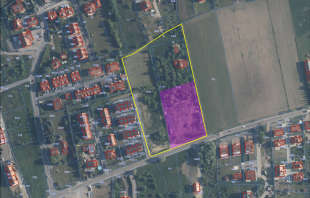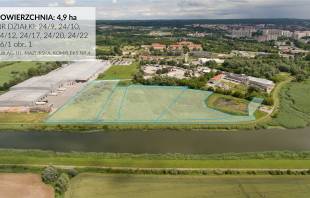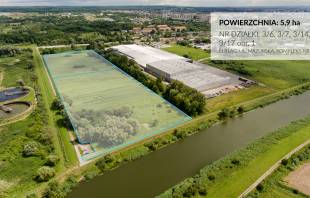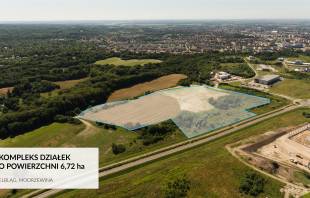With fewer opportunities for organic rental growth and further yield compression anticipated across Europe’s real estate landscape, the search for income producing assets will be a key driver for investment activity in 2020, according to international real estate advisor Savills.
– The limited quantity of quality product and late stage cycle sentiment will drive investors to seek diversification across sectors and geographies. – says Eri Mitsostergiou, Director, Savills European Research. – With such prime investment opportunities in traditional real estate sectors becoming increasingly rare, we are recognising a rising number of investors pivot their European investment strategies towards the residential and alternative sector.
Europe’s demographic trends and thriving urban centres have created increasing demand for housing, especially affordable stock, as well as senior living and student housing. – With such assets offering great opportunities for core investors seeking long term income streams and prospects for year on year rental growth, it is no surprise that 2019 saw the residential sector being recorded as the second most popular for real estate investment globally. – comments Marcus Roberts, Director, Savills European Operational Markets team. – In 2020, the launch of multiple funds targeting the ‘living’ and operational sector will intensify the competition for available product in already constrained markets but we expect that this will lead to more forward funding deals and development initiatives.
Kamil Kowa, Board Member, Head of Corporate Finance & Valuation, Savills Poland
Reklama
Reklama
– Due to the lack of existing product in PRS and PBSA sectors already in 2019 we saw growing investors’ interest in development portfolios or even acquisition of development companies with the view of establishing platforms producing rented apartments or student accommodation. On the basis of the closed and ongoing transactions we expect this trend to continue in 2020. – comments Kamil Kowa, Board Member, Head of Corporate Finance & Valuation, Savills Poland.
In 2020, investors will have to publish their policies on the integration of sustainability risks in their investment decision-making and, with buildings accounting for more than one third of global energy consumption and 40% of total CO2 emissions, the reality is that establishing the direct correlation between low ESG risk and better returns will remain a challenge. In the long run however Savills expects that residential asset classes such as affordable and senior housing, healthcare and education are likely to profit from ESG policies as their intrinsic nature appear to be more “ESG–proof” than others.
Reklama
The disruption we have seen across all property sectors in recent years has forced real estate investors to ensure their space can adapt to technological change, especially during periods of economic uncertainty. Given the urgent need for more affordable housing in Europe’s cities, the repurposing of obsolete or underperforming assets has become and will continue to be a viable and profitable alternative for investors.
Vacancy rates are at record lows across Europe’s CBDs and Savills has recorded that occupiers have seen prime rents increase by between 4-6% per annum on average since 2014, in turn tightening their operating profit margins. In response corporate occupiers in cities such as Paris are increasingly turning to flexible workspace providers during times of business uncertainty. Despite the cost of such desk space, the additional services provided in the often ‘cool’ workspace all tie in with their strategy to attract talent. – Space as a service has captured headlines this year but 2019 has been another boom year for office take-up by flexible providers, which accounted for 12% of total take up across Europe, compared to 10.5% in 2018. – adds Eri Mitsostergiou. – The case of WeWork is a good example of the opportunities and risks involved in this model but despite negative publicity, the trend is irreversible and with several new niche operators, it is spreading across sectors.
Reklama
With online retail forecast to account for 15% of total retail sales in Western Europe by 2023, landlords with high levels of exposure to bricks and mortar retail are being forced to adapt and ‘re-purpose’ their space in order to increase revenue. Dark kitchens, pop-up stores and food halls are all being incorporated into re-purposed schemes, where retailers are becoming more innovative with their space to engage with their customers. Furthermore, in order to accommodate the demand for last mile logistics space in Europe, landlords of retail parks in well-connected locations can be convert less profitable parts into urban logistics hubs to enhance their performance.
Strong urbanisation and surging density across European capital cities has had a severe knock-on effect on urban sprawling over the past decade and for these cities to remain successful, connectivity is key. In response, several gateway cities have seen a number of urban infrastructure projects underway and due to see the light in the near future, such as in London (Elizabeth Line), Paris (Grand Paris Express), and Berlin (Extension of U-Bahn and tram). – Development activity in these new or expanding tertiary hot spots provides the market with great and competitive opportunities for investors, especially in markets where prime assets are scarce and highly-priced, especially in Paris and London. – says Eri Mitsostergiou.









































